第7章 ADVENTURES AMONG BOOKS(6)
One did not then know that the same charm, with a yet fresher dew upon it, was to meet one later, in the "Kalewala." But, at that time, one had no conscious pleasure in poetic style, except in such ringing verse as Scott's, and Campbell's in his patriotic pieces.
The pleasure and enchantment of style first appealed to me, at about the age of fifteen, when one read for the first time -"So all day long the noise of battle rolled Among the mountains by the winter sea;Until King Arthur's Table, man by man, Had fallen in Lyonnesse about their Lord."Previously one had only heard of Mr. Tennyson as a name. When a child I was told that a poet was coming to a house in the Highlands where we chanced to be, a poet named Tennyson. "Is he a poet like Sir Walter Scott?" I remember asking, and was told, "No, he was not like Sir Walter Scott." Hearing no more of him, I was prowling among the books in an ancient house, a rambling old place with a ghost-room, where I found Tupper, and could not get on with "Proverbial Philosophy." Next I tried Tennyson, and instantly a new light of poetry dawned, a new music was audible, a new god came into my medley of a Pantheon, a god never to be dethroned. "Men scarcely know how beautiful fire is," Shelley says. I am convinced that we scarcely know how great a poet Lord Tennyson is; use has made him too familiar. The same hand has "raised the Table Round again," that has written the sacred book of friendship, that has lulled us with the magic of the "Lotus Eaters," and the melody of "Tithonus." He has made us move, like his own Prince -"Among a world of ghosts, And feel ourselves the shadows of a dream."He has enriched our world with conquests of romance; he has recut and reset a thousand ancient gems of Greece and Rome; he has roused our patriotism; he has stirred our pity; there is hardly a human passion but he has purged it and ennobled it, including "this of love." Truly, the Laureate remains the most various, the sweetest, the most exquisite, the most learned, the most Virgilian of all English poets, and we may pity the lovers of poetry who died before Tennyson came.
Here may end the desultory tale of a desultory bookish boyhood. It was not in nature that one should not begin to rhyme for one's self. But those exercises were seldom even written down; they lived a little while in a memory which has lost them long ago. Ido remember me that I tried some of my attempts on my dear mother, who said much what Dryden said to "Cousin Swift," "You will never be a poet," a decision in which I straightway acquiesced. For to rhyme is one thing, to be a poet quite another. A good deal of mortification would be avoided if young men and maidens only kept this obvious fact well posed in front of their vanity and their ambition.
In these bookish memories I have said nothing about religion and religious books, for various reasons. But, unlike other Scots of the pen, I got no harm from "The Shorter Catechism," of which Iremember little, and neither then nor now was or am able to understand a single sentence. Some precocious metaphysicians comprehended and stood aghast at justification, sanctification, adoption, and effectual calling. These, apparently, were necessary processes in the Scottish spiritual life. But we were not told what they meant, nor were we distressed by a sense that we had not passed through them. From most children, one trusts, Calvinism ran like water off a duck's back; unlucky were they who first absorbed, and later were compelled to get rid of, "The Shorter Catechism!"One good thing, if no more, these memories may accomplish. Young men, especially in America, write to me and ask me to recommend "a course of reading." Distrust a course of reading! People who really care for books READ ALL OF THEM. There is no other course.
Let this be a reply. No other answer shall they get from me, the inquiring young men.
II
People talk, in novels, about the delights of a first love. One may venture to doubt whether everybody exactly knows which was his, or her, first love, of men or women, but about our first loves in books there can be no mistake. They were, and remain, the dearest of all; after boyhood the bloom is off the literary rye. The first parcel of these garrulities ended when the author left school, at about the age of seventeen. One's literary equipment seems to have been then almost as complete as it ever will be, one's tastes definitely formed, one's favourites already chosen. As long as we live we hope to read, but we never can "recapture the first fine careless rapture." Besides, one begins to write, and that is fatal. My own first essays were composed at school--for other boys. Not long ago the gentleman who was then our English master wrote to me, informing me he was my earliest public, and that he had never credited my younger brother with the essays which that unscrupulous lad ("I speak of him but brotherly") was accustomed to present for his consideration.